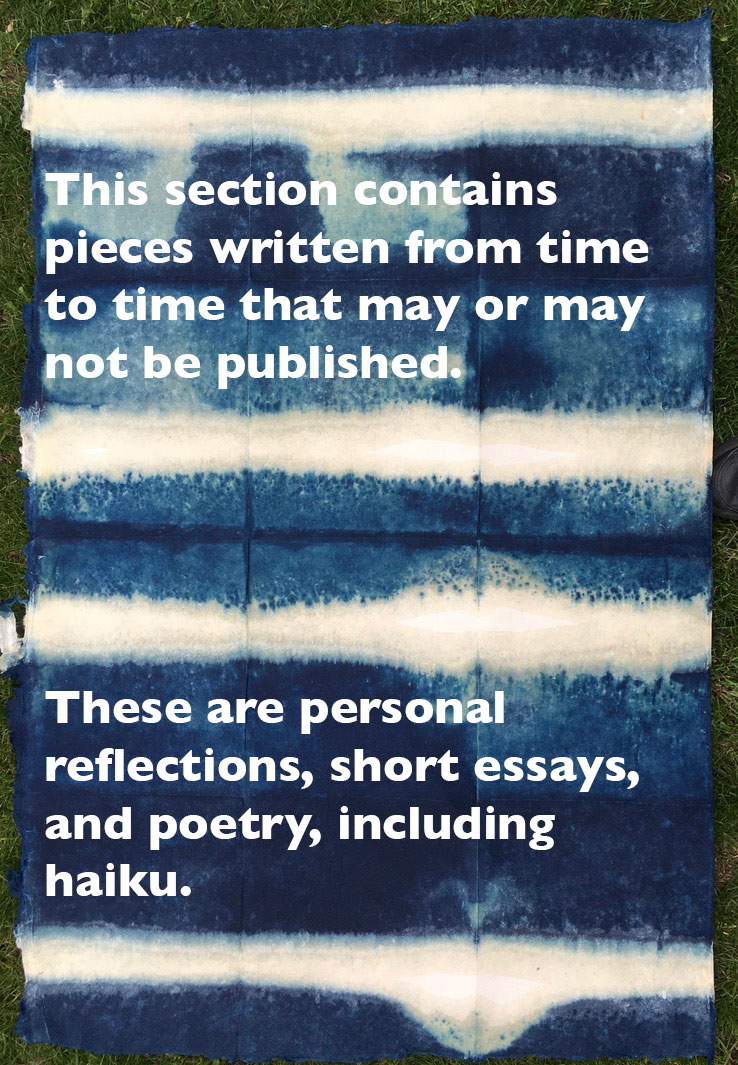Russia and the World
I feel deeply sad this morning, about Russia and the world.
From my teen years I have been aware of imminent and possible death and destruction. As a sophomore in high school, our mother almost died, and I have already told that story. But during those first two years of high school, I was also in a debate class, where we had a year-long topic about nuclear weapons and war. So, we studied and studied, read and talked. I wasn’t a great extemporaneous or impromptu speaker, so I didn’t excel in debating this topic, but I was a good researcher. Also, as a sophomore I had begun to study Russian, as it was offered at Highline High School. After three years studying Spanish in junior high, I knew that I had a knack for learning languages.
Growing up in Seattle we looked west, across the Pacific, and Russia seemed so close yet so mysterious and scary. But I was fascinated, and in a curious way I never imagined Russian people as the enemy. I wanted to know more, and so I went to Austria to study Russian during the summer after high school, and our group travelled to Russia—to Kyiv, Moscow, and Leningrad, as it was then called. In Kyiv, my new friend David Campbell and I journeyed around the city by tram, then walked miles and miles as day turned into evening. I remember that we talked to two soldiers, about our age. He told me yesterday in an email that we ended up at a bonfire with others near a construction site, but I don’t remember that. Perhaps the most stunning part of this whole trip was a visit to the Hermitage Museum, where I saw Michelangelo’s Crouching Boy sculpture and Matisse’s huge painting, The Dance. I had never been in a world-class museum before, and this was an extraordinary experience.
Anyway, I began my college year imagining that I would major in Russian and settled into a fourth year of Russian. But an unexpected pregnancy and subsequent depression changed all of that. Instead, I settled into the art department, and especially the ceramics lab, where I found ways to begin to explore my inner life.
But Russia remained a fascination. Many years later at Harvard Divinity School and Harvard University, I had the opportunity to study a series of icons in the university museum as an art history project. I met a Russian priest who was visiting the Divinity School, and I helped him navigate Cambridge. I began to learn about Russian Orthodoxy, and more about Russian history. When Professor Oleg Grabar had us read a book about early twentieth-century philosopher Mikhail Bakhtin, I decided to focus my doctoral dissertation around his work. I went to Middlebury College for a 9-week Russian language intensive. I then worked with a tutor in Boston, a former professor at Leningrad State University; and I translated one of Bakhtin’s long essays about aesthetics that had not yet been published. All of this later lead to my first book with Cambridge University Press, Bakhtin and the Visual Arts, which was published in 1995.
My first teaching position after earning the PhD in Art History and the Study of Religion was at Washington State University. I was attracted to this job for many reasons, including the proximity to our family in the Seattle area. But I also learned upon arriving that two of my colleagues were headed to Vladivostok that fall of 1991. I was beyond excited, because a new potential exchange program was being developed. “Vlad” as we called it, was the closest major Russian city to us, and I had known from high school that it was a major nuclear submarine site. I began a series of journeys there in 1993, when I went twice as part of our new exchange program. The 1990s were a busy time: I went again to Moscow for a Bakhtin International Conference, to St. Petersburg for an Art and Religion conference, and two more times to Vladivostok. I wrote grants to bring a museum director to Pullman, and two other Russians from Vlad stayed with David and me when they were visiting as part of this exchange.
I also spent years teaching about Russian art, both ancient and contemporary, at Washington State University and University of Colorado from 1991-2013. That was always a favorite topic.
So now, what’s happening in Ukraine seems deeply sad to me. Russia has had such a dreadful past of tyrants and gulags and revolutions . . . yet some part of my heart is there. I still have friends in Vladivostok. I still yearn to know “the other,” and Russia is definitely “other.” Ukraine itself was the site of the Chernobyl disaster in 1986, and that region with the Dnieper River is the originator of so much culture, religion, and language, as my friend David Campbell reminded me. The terrible destruction there will not be repaired. Ecological destruction, death, more refugees: these consequences are still unknown. And then, there is the world. The threats of nuclear and cyber warfare are real. The destabilization of the world is real . . . what will happen with the United Nations, with NATO? The world as we knew it is gone. Life has always been uncertain, did I forget?
Do you remember that old song: “What the world needs now is love, sweet love….?”
